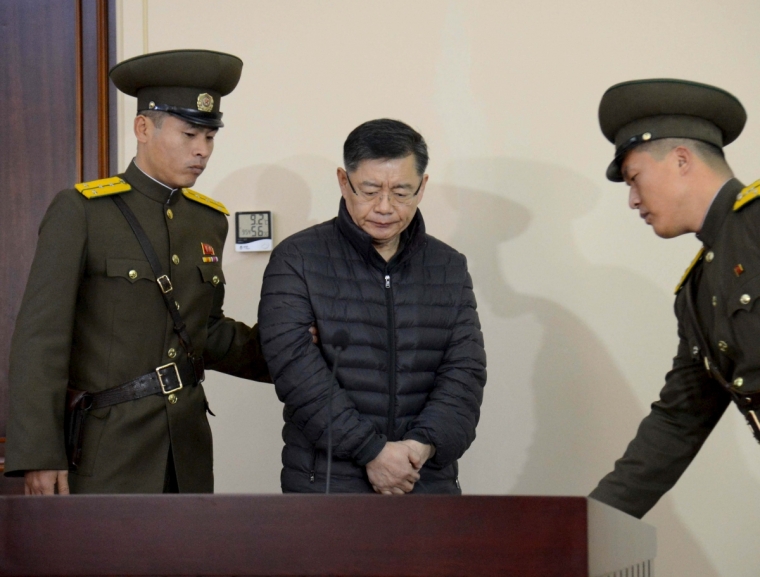Blasphemy laws spawn mob violence in watch list countries

WASHINGTON (Christian Examiner) – The U.S. Commission on International Religious Freedom is encouraging the U.S. State Department to add seven more countries – Central African Republic, Egypt, Iraq, Nigeria, Pakistan, Syria and Vietnam – to the its designated list of "Countries of Particular Concern" (CPCs).
The request came after the U.S. State Department released its own report on international religious freedom August 10. That report covers abuses of religious liberty in 2015 and features cases of those imprisoned, tortured and killed for their religion, belief or lack of belief. It also highlights the "egregious abuses" of non-state actors, such as the Islamic State or, as the government calls it, Da'esh.
All residents of countries where laws or social norms encourage the death penalty for blasphemy are vulnerable to attacks .... This is particularly true for those who have less power and are more vulnerable in those societies, like women, religious minorities, and the poor. False accusations, often lodged in pursuit of personal vendettas or for the personal gain of the accuser, are not uncommon. Mob violence as a result of such accusations is disturbingly common.
In the report, the State Department said ISIS "continued to pursue a brutal strategy of what Secretary Kerry judged to constitute genocide against Yezidis, Christians, Shia, and other vulnerable groups in the territory it controlled, and was responsible for barbarous acts, including killings, torture, enslavement and trafficking, rape and other sexual abused against religious and ethnic minorities and Sunnis in areas under its control."
Where ISIS does not control the territory, it indiscriminately murders by suicide bombings and car bombs, the report also said.
However, other countries, such as Pakistan and Afghanistan, were also serious violators. In many of the traditional Islamic countries, the report said, "societal passions associated with blasphemy" are aided by laws which penalize those who leave – or express a desire to leave – Islam.
"All residents of countries where laws or social norms encourage the death penalty for blasphemy are vulnerable to attacks .... This is particularly true for those who have less power and are more vulnerable in those societies, like women, religious minorities, and the poor. False accusations, often lodged in pursuit of personal vendettas or for the personal gain of the accuser, are not uncommon. Mob violence as a result of such accusations is disturbingly common. In addition to the danger of mob violence engendered by blasphemy accusations, courts in many countries continued to hand down harsh sentences for blasphemy and apostasy, which were used to severely curtail the religious freedom of their residents," the State Department's report said.
Jesuit Priest Thomas Reese, who serves as USCIRF's chair, said the Commission is pleased the State Department is encouraging countries around the world to adopt policies that support and protect the right of religious liberty.
"About 74 percent of the world's population are living in countries with serious restrictions on religious freedom, according to David Saperstein, the Ambassador-at-Large for Religious Freedom. This large number reinforces the importance of religious freedom and the task we have before us," Reese said.
He also encouraged the U.S. to consider expanding its number of CPCs from the 10 already named, including Burma, China, Eritrea, Iran, North Korea, Saudi Arabia, Sudan, Tajikistan, Turkmenistan and Uzbekistan.
However, world events often determine whether or not a country will be designated as a CPC by the State Department.
For example, while Vietnam has been cited for repeated abuses of religious freedom, on some fronts it is making progress (such as ceasing the interference with churches in Ho Chi Minh City). And with the country serving as a potential counterbalance to China – with U.S. support – in the South China Sea, it isn't likely that Vietnam will be given the CPC designation.